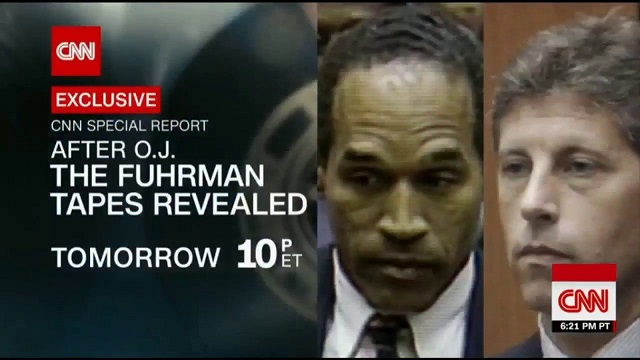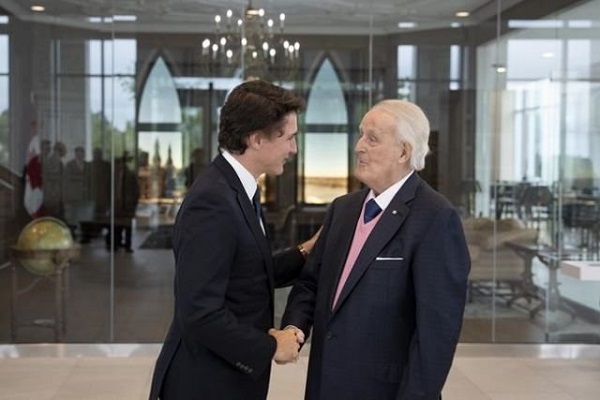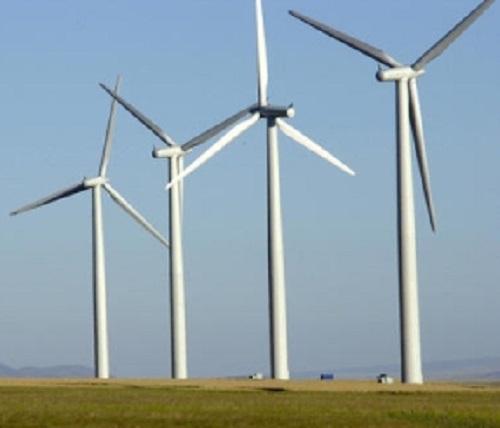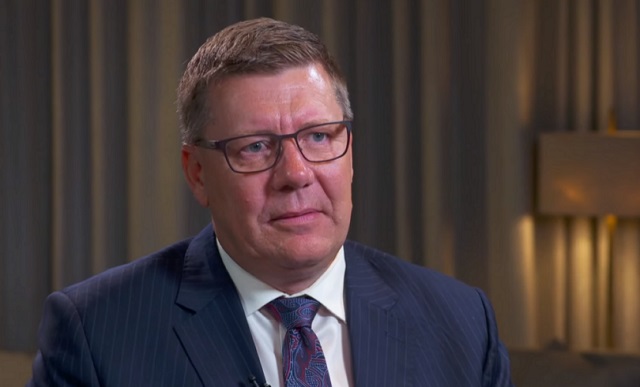Alberta
The way forward for energy development? Cenovus commits to building hundreds of homes in communities closest to their oil sands operations

From Cenovus Energy
Our Indigenous Housing program, the largest community investment initiative in Cenovus’s history, is aimed at addressing one of the most pressing issues facing Indigenous communities in Canada – the lack of adequate housing that is forcing many families to live in overcrowded and unsafe conditions.
The program involves a plan to commit $10 million per year for at least five years to build much-needed new homes in six First Nations and Métis communities closest to our oil sands operations in northern Alberta, with the potential to extend the project to 10 years. We see this initiative as an important way to contribute to reconciliation with Indigenous peoples.
We also plan to work with the communities to develop training programs, so that local residents can participate in the building and maintenance of the new homes.
The communities that are part of this program are:
- Beaver Lake Cree Nation
- Chard Métis (Local 218)
- Chipewyan Prairie Dene First Nation
- Cold Lake First Nations
- Conklin Métis (Local 193)
- Heart Lake First Nation
More information including comments from the surrounding communities
Cenovus to help address Indigenous housing crisis in northern Alberta
Project aims to provide about 200 new homes as well as jobs and training opportunities
Cenovus Energy Inc. has launched a major initiative aimed at addressing one of the most pressing issues facing Indigenous communities in Canada – the lack of adequate housing that is forcing many families to live in overcrowded and unsafe conditions. Cenovus is committing $10 million per year for five years to build much-needed new homes in six First Nations and Métis communities closest to its oil sands operations in northern Alberta, with the potential to extend the project to 10 years. The company sees this initiative as an important way to contribute to reconciliation with Indigenous peoples.
“Investing in Indigenous communities near our operations and ensuring they share in the benefits of resource development has always been part of how we do business. Today, we see an opportunity to step up and do more,” said Alex Pourbaix, Cenovus President & Chief Executive Officer. “We can’t solve the Indigenous housing crisis by ourselves, but through this initiative, we have the opportunity to significantly improve the lives of many families currently living in overcrowded and unsafe conditions.”
Developed as part of Cenovus’s recent 10th anniversary celebration, the housing initiative is the single largest community investment in the company’s history. It’s a testament to the strong positive relationships Cenovus has built over many years working with Indigenous communities near its Christina Lake and Foster Creek oil sands projects. Cenovus has met with leaders from Beaver Lake Cree Nation, Chard Métis (Local 218), Chipewyan Prairie Dene First Nation, Cold Lake First Nations, Conklin Métis (Local 193) and Heart Lake First Nation to begin planning the implementation of the housing program starting this year.
Cenovus plans to work with leaders from the six communities to determine the most effective ways of delivering new homes based on the specific needs of each community. It’s anticipated the communities will be able to build about 200 new houses in total over five years. Cenovus will also work with the communities to develop training programs, so that local residents can participate in the building and maintenance of the new homes. This will potentially create valuable education and employment opportunities for them in the long term. Depending on the success of the initiative, including meeting Cenovus’s performance expectations, the company may consider extending the program to 10 years with a total investment amount of $100 million.
“In addition to creating training and employment opportunities and funding the construction of new houses, Cenovus will also work with communities to raise awareness about the Indigenous housing shortage and help advocate for solutions,” said Pourbaix. “Communities have done an admirable job in managing their housing with limited resources. But this is a complex issue that will require new ideas and collaboration among many stakeholders. We hope to inspire other companies, governments and organizations to get involved.”
Separately, Cenovus has engaged its Indigenous Inclusion Advisory Committee, created in 2017 and comprised of senior leaders from various company functions, to help increase Indigenous inclusion in the company’s business. Since its inception in 2009, Cenovus has signed nine long-term benefits agreements with Indigenous communities near its oil sands operations and spent almost $3 billion with Indigenous owned and operated businesses. On January 9, 2020, Cenovus announced ambitious new targets in four environmental, social and governance (ESG) focus areas, including Indigenous engagement, climate & greenhouse gas emissions, land & wildlife, and water stewardship. A significant element of the Indigenous engagement ESG target commits Cenovus to spend at least an additional $1.5 billion with Indigenous businesses through 2030. Cenovus also continues to provide scholarships to Indigenous youth who are pursuing a full-time degree, diploma or certified trade program. More than 190 scholarships have been awarded since the Indigenous scholarship program started in 2013.
Shirley Paradis, Councillor, Beaver Lake Cree Nation
“Beaver Lake Cree Nation has always had housing issues. We’re at a capacity where we are trying to keep up with families’ needs. The most crucial thing is understanding that we have help now. Cenovus is stepping forward and saying: ‘We’re here to help, how do we help your community?’ There is going to be a sigh of relief for us.”
Justin Herman, CEO, Chard Métis (Local 218)
“What I am taking away from Cenovus’s announcement about the new housing initiative – it’s absolutely amazing and groundbreaking, and I hope it sets a precedent for the rest of the industry to follow the lead of Cenovus. We are excited and honoured to be part of this housing initiative.”
Vern Janvier, Chief, Chipewyan Prairie Dene First Nation
“We’re getting to the point where we have two families living in one house, and in some cases three. On top of the houses that are in disrepair, we have demand for another 50 houses. That’s how it builds up on us. And that’s just our reserve.”
Roger Marten, Chief, Cold Lake First Nations
“We have about 3,000 band members and only 300 homes. So, the crisis is always there and is always ongoing. The relationship has always been a great one with Cenovus; they have always listened and try to do the best they can to help us along the way.”
Val Quintal, Board member, Conklin Resource Development Advisory Committee, representing Conklin Métis (Local 193)
“Housing is a critical need for Conklin, and we are so pleased that Cenovus has come forward to help our community address this issue.”
Curtis Monias, Chief, Heart Lake First Nation
“I am really excited for Heart Lake. I look forward to working with all the surrounding communities, with industry, and I’m excited to build homes back home for my people.”
Alberta
Danielle Smith warns arsonists who start wildfires in Alberta that they will be held accountable

From LifeSiteNews
The Alberta government has created an ad campaign highlighting the fact that most fires are caused by humans and not ‘climate change,’ as many left-leaning politicians claim.
In preparation for the so-called wildfire “season,” Alberta Premier Danielle Smith sternly warned anyone caught starting blazes in her province, including arsonists, that they will face charges and be held fully “liable” for all costs associated with the fires.
“As we approach the wildfire season, it is important to understand that 67% of wildfires in Alberta are started by people,” Smith posted Monday on X.
“If you start a wildfire, you can be charged, fined, and held liable for all costs associated with fighting the wildfire.”
Smith made the comments after last year revealing that most of the wildfires in her province (500 of the 650) were caused by humans and not “climate change,” as has been pushed by the legacy media and opposition politicians.
“All I know is in my province we have 650 fires and 500 of them were human caused,” she said, “so we have to make sure that when people know that when it’s dry out there and we get into forest fire season that they’re being a lot more careful because anytime you end up with an ignition that happens it can have devastating consequences.”
To go along with Smith’s Monday message, the Alberta government has also created an ad campaign highlighting the fact that most fires are caused by humans and not “climate change,” as many left-leaning politicians claim.
As reported by LifeSiteNews last year, Smith ordered arson investigators to look into why some of the wildfires that raged across the vast expanse of the province had “no known cause” shortly after they spread.
During the campaign of Alberta’s 2023 election, Smith, whose United Conservative Party won a majority government, had to pause to deal with many wildfires that suddenly, out of nowhere, ravaged the province. The fires came on suddenly and uncharacteristically considering the heavy snowfall in the province in early March and rain in April.
LifeSiteNews reported that despite the arrest of multiple arsonists, Canada’s mainstream media and the federal government have been pushing a narrative attributing the recent wildfires to “climate change.”
Indeed, in January, LifeSiteNews reported that a man from Quebec admitted to starting 14 forest fires himself. This put a chill to the legacy media’s push that the fires in the province were caused by “climate change.”
However, statistics from Canada’s National Fire Database show that wildfires have gone down in recent years and peaked in 1989.
As for Canadian Prime Minister Justin Trudeau, he has repeatedly used “climate change” and forest fires as a catalyst for propping up his government’s much-maligned carbon tax, which Smith opposes. He has blamed the fires on “climate change.”
A June 2017 peer-reviewed study by two scientists and a veteran statistician confirmed that most of the recent global warming data have been “fabricated by climate scientists to make it look more frightening.”
Trudeau has been calling for increased bans on Canada’s natural resources, of which Alberta has in abundance.
Smith has vowed to fight Trudeau on his attacks against Alberta’s oil and gas industry.
The reduction and eventual elimination of so-called “fossil fuels” and a transition to unreliable “green” energy has also been pushed by the World Economic Forum (WEF), the globalist group behind the socialist “Great Reset” agenda in which Trudeau and some of his cabinet are involved.
Alberta
Free Alberta Strategy backing Smith’s Provincial Priorities Act
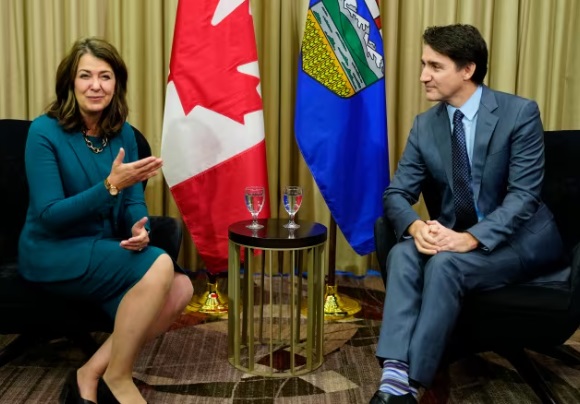
News release from Free Alberta Strategy
Premier Danielle Smith had a message for Ottawa last week.
Keep out.
On Wednesday, the Premier rolled out her latest weapon in the fight against federal intrusions into provincial jurisdiction.
If passed, Bill 18 – the Provincial Priorities Act – aims to align federal funding with provincial priorities, ensuring that said funding reflects Alberta’s interests.
The legislation stipulates that any agreements between the federal government and any provincial entities – including municipalities – must receive provincial approval to be considered valid.
Smith has already given it a nickname: “the stay-out-of-my-backyard bill.”
It’s an apt description of the legislation, especially considering that’s what the federal government has been doing for years – encroaching into Alberta’s jurisdiction.
The legislation shouldn’t come as a surprise to anyone.
We all know that most deals the Alberta government enters into with the federal government don’t work out for Albertans.
We end up paying more in federal taxes than gets spent in federal spending on the programs.
The programs come laden with restrictive conditions that undermine our autonomy, and are often detrimental to our ability to provide the services.
This is especially true with regard to the recent agreement between Ottawa and the provinces that allows the federal government to nationalize childcare.
The childcare agreement has come under heavy criticism due to funding shortfalls in the deal.
It also applies to housing, where despite Alberta accounting for 12% of the national population and experiencing the most rapid population growth, it received a mere 2.5% of the total $1.5 billion in federal housing funding last summer.
Jason Nixon, Minister of Seniors, Community and Social Services, is in charge of housing in Alberta – which is provincial jurisdiction.
On the latest rollout of conditional federal housing handouts, Nixon isn’t buying.
“We will not be bribed, with our own money, to increase the time it takes to get homes built with green energy that makes homes more expensive.”
The theory also applies to the federal government’s latest gambit – doing an end-around provincial negotiations and going directly to municipalities, who seem more interested in taking the money than the conditions attached.
Municipalities are provincial jurisdiction.
Bill 18 mandates that entities within Alberta’s jurisdiction, such as municipalities, universities, school boards, housing agencies, and health authorities, must seek the province’s approval before engaging in, modifying, extending, or renewing agreements with Ottawa.
Agreements between the federal government and provincial entities lacking Alberta’s endorsement will be deemed illegal under this legislation.
That’s Premier Smith’s message.
She’s had enough of it.
“It is not unreasonable for Alberta to demand fairness from Ottawa. They have shown time and again that they will put ideology before practicality, which hurts Alberta families and our economy. We are not going to apologize for continuing to stand up for Albertans so we get the best deal possible.
“Since Ottawa refuses to acknowledge the negative impacts of its overreach, even after losing battles at the Federal and Supreme Courts, we are putting in additional measures to protect our provincial jurisdiction to ensure our province receives our fair share of federal tax dollars and that those dollars are spent on the priorities of Albertans.”
Municipal Affairs Minister Ric McIver had additional thoughts:
“For years, the federal government has been imposing its agenda on Alberta taxpayers through direct funding agreements with cities and other provincial organizations. Not only does Alberta not receive its per capita share of federal taxpayer dollars, the money we do receive is often directed towards initiatives that don’t align with Albertan’s priorities.
“Albertans from all corners of the province expect our federal share of taxes for roads, infrastructure, housing and other priorities – not federal government political pet projects and programs in select communities.”
The Provincial Priorities Act is based on existing provincial legislation in Quebec – called “An Act Respecting the Ministère du Conseil executif” – which prohibits any municipal body from entering into or negotiating an agreement with the federal government or its agencies without express authorization from the Quebec government.
That’s right – the Quebec government has the same rule!
So, this boils down to the same argument we’ve been making for years – if Ottawa wants to step into our backyard, it must first seek Alberta’s approval.
Enough is enough – we won’t stand idly by as our interests are trampled upon.
It’s time for Ottawa to recognize Alberta’s autonomy and respect our right to determine our own future.
At the Free Alberta Strategy, we know that constant vigilance is necessary – for every fence we put up, the federal government tries to find a way around it.
We’ll continue to bring you information about what’s happening in Alberta’s backyard and fighting to keep Ottawa out.
The Free Alberta Strategy Team
-

 Alberta2 days ago
Alberta2 days agoFree Alberta Strategy backing Smith’s Provincial Priorities Act
-
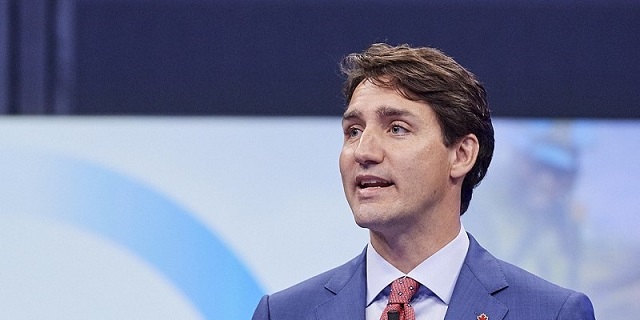
 Business22 hours ago
Business22 hours agoFederal budget fails to ‘break the glass’ on Canada’s economic growth crisis
-

 Automotive2 days ago
Automotive2 days agoBiden’s Kill Switch: The Growing Threat of Government Control of Your Car
-

 Business22 hours ago
Business22 hours agoBusiness investment key to addressing Canada’s productivity crisis
-
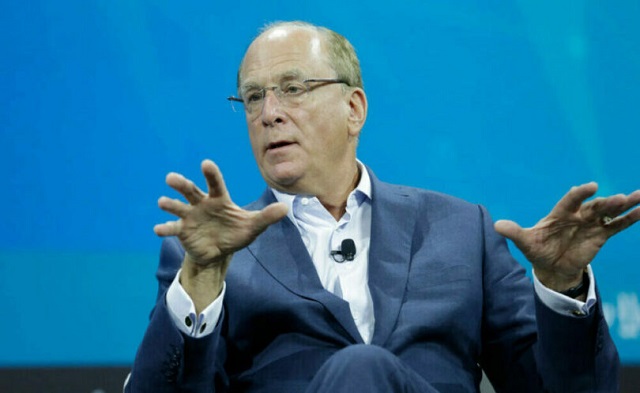
 Business2 days ago
Business2 days agoUS firms like BlackRock are dropping their climate obsession while Europe ramps theirs up
-
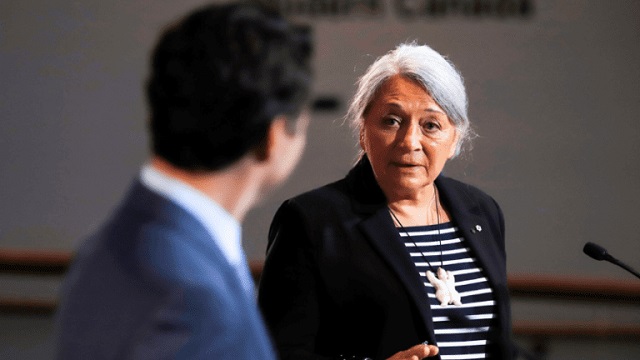
 MacDonald Laurier Institute2 days ago
MacDonald Laurier Institute2 days agoThe Governor General deserves better, but we deserve impartiality
-

 Economy2 days ago
Economy2 days agoFederal budget: You can’t solve a productivity emergency with tax hikes
-
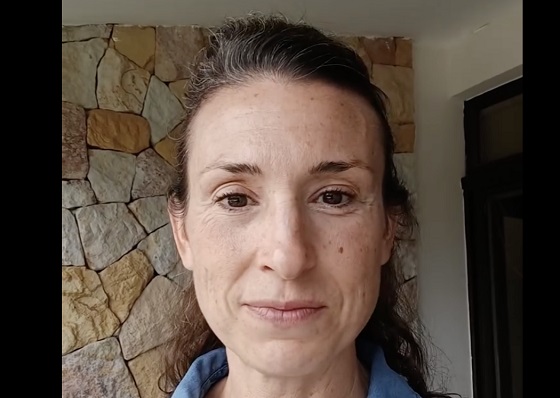
 COVID-191 day ago
COVID-191 day agoPro-freedom Canadian nurse gets two years probation for protesting COVID restrictions

